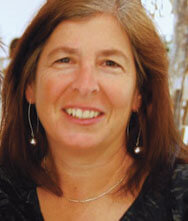The Oreg Foundation is a long-time funding partner with Rose Community Foundation, having joined us in supporting several strategic initiatives. Our two organizations also partner to fund many programs and nonprofit organizations, and regularly engage in conversations about enduring community issues. We spoke with Julie Shaffer, executive director of Oreg, about the benefits of collaborative funding.
Who is the Oreg Foundation?
The Oreg Foundation supports innovative organizations and initiatives to enhance Jewish life, assist in meeting basic needs and protect the environment. Oreg is based in Boulder.
Explain the importance of collaboration to the work you do as a foundation.
The Oreg Foundation places great value on collaboration. Wherever possible we try to find others to partner with on projects or to make our grants in a way that we leverage our giving to further support the missions of the nonprofits with whom we work.
As a foundation, have you found that partnering can help advance a cause better than working on your own?
We definitely find it can advance a cause. For example, when we partner with Rose Community Foundation, one of the things we really appreciate is that Rose has a wide reach, lots of resources, and name recognition in the community that allows it to do very significant things. When we partner it allows some of Oreg’s smaller grants to have a much broader impact. All of our interests are further advanced when we work together; there’s no question about it.
Can you share an example of a successful collaboration?
The Oreg Foundation partnered with 18 Pomegranates and Rose Community Foundation to create an initiative that was intended to attract young people to Jewish life through an interest in food, healthy living and the environment. A collaborative grant to Hazon has allowed us to send local residents to Hazon’s national food conference and then to create the Rocky Mountain Food Festival here. Jewish community-supported agriculture organizations have proliferated as a result. Many local Jewish institutions have participated in Hazon’s food audit and many people are participating in community gardening efforts and food justice programming. We are pleased that many people of all ages are participating in programs that heighten awareness about our food and healthy living while engaging people in Jewish community.
Where do you see philanthropy and collaboration going in the future?
The conversations in the philanthropic community are very much oriented toward working together. Oreg and Rose Community Foundation are both participating in a national conversation to identify common goals that we can all get motivated around and toward which we can pool our resources or agree to make philanthropic investments.
Are there opportunities for others to get involved?
We are eager to bring other individual and Foundation funders into our collaborative grantmaking. There’s room for different types of funders to collaborate and we’re always striving for ways to bring more in to participate. Not only are we involved in the business of grantmaking, but we’re very engaged in creating new opportunities and new ways to invite others – large and small – to partner, no matter what size the investment.
About Julie Shaffer
Julie has been involved in Colorado’s nonprofit world for 20 years. She has served as the Foundation’s executive director since 2004. She serves on the Boards of Joshua Venture Group, Judaism Your Way, Encounter, and was a founding Board Member of the Boulder Jewish Community Foundation. She also serves on committees for the Boulder JCC and Post Holocaust American Judaism at the University of Colorado, and is a partner in Social Venture Partners of Boulder County.

